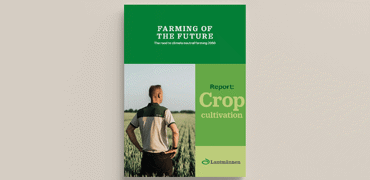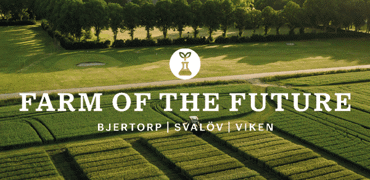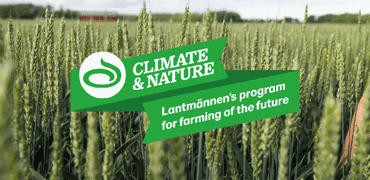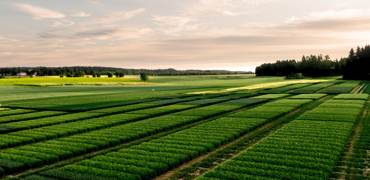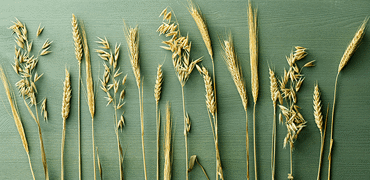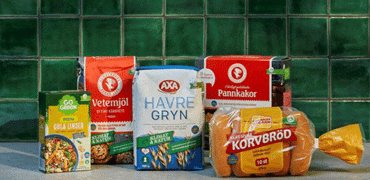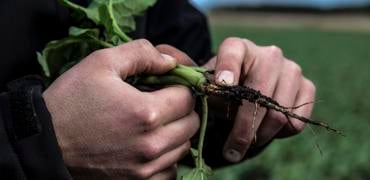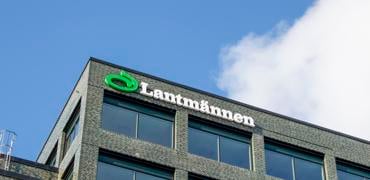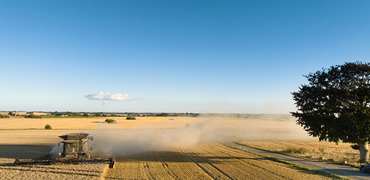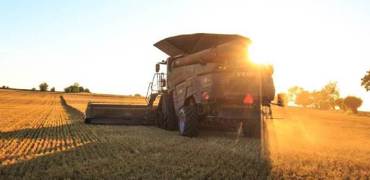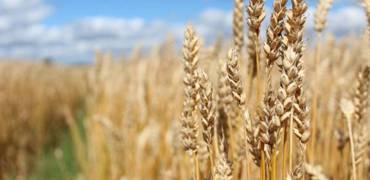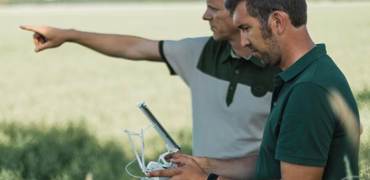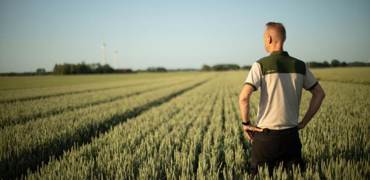Farming of the Future - a common direction for Lantmännen's members

On May 7th, Lantmännen's annual general meeting was held, where a record-breaking dividend, totalling SEK 1.2 billion, to members and Swedish agriculture, was proposed by the board. Lantmännen’s Chairman, Per Lindahl, comments on the past year’s events and the direction ahead, and how Lantmännen as a cooperative can contribute to a productive, profitable and climate-neutral farming by 2050.
For me, the Annual General Meeting is a great opportunity to reflect on the events of this past year and the current issues that are on the agenda for next year. In many ways, we continue to do business in an uncertain time, geopolitically, climate-wise and economically. But both Lantmännen and society at large have come further in strengthening our resilience to the challenges and in defining how we should handle them. The fact that the economy seems to be stabilisingis good for society as a whole. With better predictability we can take greater steps forward in the development of sustainable and profitable agriculture in accordance with Lantmännen's vision Farming of the Future.
During the past year, we have taken steps forward in important issues to achieve our vision. A fossil-free value chain for large-scale food production is now a reality through the Climate & Nature cultivation program. In climate change adaptation, we have gained a clearer picture of what is required in terms of investments in water management through irrigation and drainage. Our investments in plant breeding are showing faster and faster results. More details about our progress can be found in the Yearbook for Farming of the Future, which summarises our work in 2023.
Our goal of increasing grain production by 2050 and at the same time reducing emissions meets a growing demand and is based on Sweden's relatively good conditions for dealing with climate change.
We have a clear growth agenda for Swedish primary production – we want to and can produce more, sustainably grown grain. And as a large cooperative, we have a responsibility to do so and contribute both to the Swedish food supply and to the profitability of our owners' farms. Our goal of increasing grain production by 2050 and at the same time reducing emissions meets a growing demand and is based on Sweden's relatively good conditions for dealing with climate change. Other parts of Europe and the world are likely to face more difficult future conditions with drought and extreme weather, and production there may decline. Our goal is to increase crop yields by one million tonnes per decade.
In Sweden, the issue of preparedness is currently high on the agenda. To increase food preparedness, it is crucial to strengthen the profitability of agriculture and produce more food in Sweden. In addition to food, stocks of inputs such as mineral fertilisers, plant protection and fuel are needed to secure that Swedish agriculture can function in the event of a crisis. On this issue, Lantmännen is taking action and engaging in high-level dialogues to share our knowledge to create a more robust food preparedness. At the same time, we are achieving our goals of increased production and profitability as well as reduced climate impact.
The strength of our cooperative business model and the breadth of our business from field to fork give us the strength to meet the challenges ahead and take big steps towards Farming of the Future.
Now that we have all gathered during the Annual General Meeting, we are looking aheadin the hopes of a better harvest year in 2024. Last year was a bad year for many, while it is pleasing to see that livestock production has had a solid development, and the trend looks positive across most production branches. The strength of our cooperative business model and the breadth of our business from field to fork give us the strength to meet the challenges ahead and take big steps towards Farming of the Future. And with the record-breaking dividend to our members, we can give a further boost to that development and contribute to reinvestments in Swedish agriculture.






